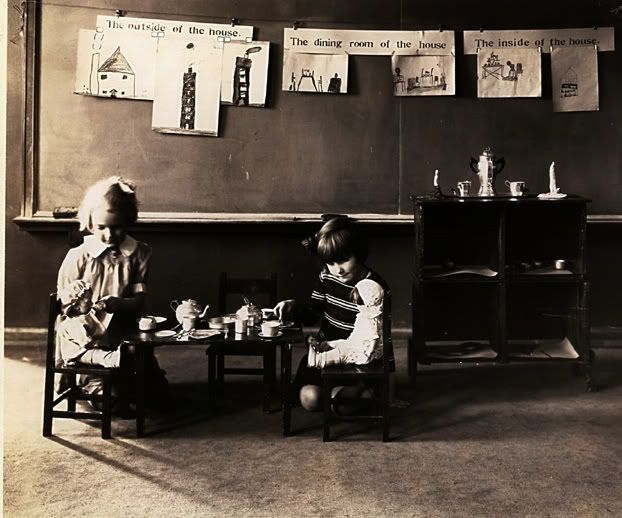The Sixth Borough

Young friends, whose string-and-tin-can phone extended from island to island had to pay out more and more string as if letting kites go higher and higher.
"'It's getting almost impossible to hear you' said the young girl from her bedroom in Manhattan as she squinted through a pair of her father's binoculars, trying to find her friends window.
"'I'll holler if I have to,' said her friend from his bedroom in the Sixth Borough, aiming last birthday's telescope at her apartment.
"The string between them grew incredibly long, so long it had to be extended with many other strings tied together: his yo-yo string, the pull from her talking doll, the twine that had fastened his fathers diary, the waxy string that kept her grandmother's pearls around her neck and off the floor, the thread that had separated his great-uncle's childhood quilt from a pile of rags. Contained within everything they shared with one another were the yo-yo, the doll, the diary, the necklace, and the quilt. They had more and more to tell each other, and less and less string.
"The boy asked the girl to say 'I love you' into her can, giving her no further explanation.
"And she didn't ask for any, or say 'That's silly,' or 'We're too young for love,' or even suggest that she was saying 'I love you' because he asked her to. Instead she said, 'I love you.' The words traveled the yo-yo, the doll, the diary, the necklace, the quilt, the clothesline, the birthday present, the harp, the tea bag, the tennis racket, the hem of the skirt he one day should have pulled from her body. The boy covered his can with a lid, removed it from the string, and put her love for him on a shelf in his closet. Of course, he never could open the can, because then he would lose its contents. It was just enough to know it was there.
- Extremely Loud and Incredible Close (pg 220) by Jonathan Safran Foer.